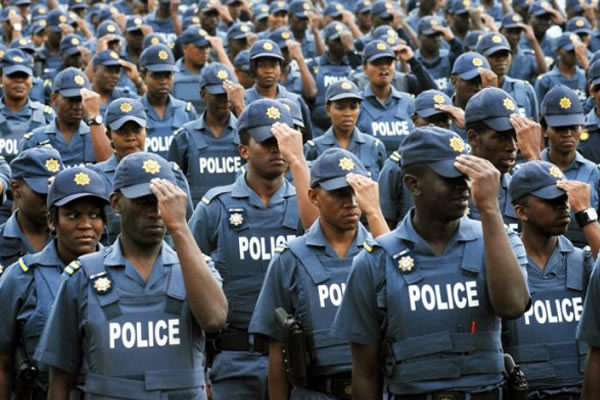The South African Police Service (SAPS) is grappling with the dual challenges of attracting and retaining skilled personnel, as highlighted in its latest annual report for the full year 2023. The report reveals that the SAPS currently employs approximately 179,502 police officers, with an average salary of R450,000 per year or R37,500 per month. While the figures indicate a slight increase in employment compared to the previous year, the police-to-population ratio remains a concern, with a ratio of approximately 1 police officer to 417 citizens.
The report showcases the composition of the SAPS workforce, encompassing both active police officers and administrative staff. Among the 179,502 employees, there are 20,547 commissioned officers, 123,896 non-commissioned officers, and 34,226 Public Service Act employees. However, this figure falls short of the generally accepted benchmark of one police officer to 450 people, signifying an imbalance in the distribution of law enforcement resources.
In a country grappling with high crime rates, maintaining an adequate police-to-population ratio is crucial for ensuring public safety. Although the benchmark ratio is not a one-size-fits-all solution, it provides a useful guideline for countries to assess their law enforcement capacities. South Africa's ratio has seen a significant increase over the past five years, from 1 police member to 358 citizens in 2014/15 to the current ratio of 1:417.
The SAPS employees work across various sectors, including administration, visible policing, and crime intelligence. Salaries range from an average of R299,000 for the lowest skill level (1-2) to an average of R1,431,000 for senior management and executive employees (levels 13-16). The overall average wage across all levels stands at R450,000 or R37,500 per month. This places SAPS members at an advantageous position compared to the average formally employed non-agricultural worker, who earns an average of R26,791 per month as of the first quarter of 2024.
While the above-average pay may seem attractive, the SAPS continues to face personnel attrition, particularly among its elite task force members. In May, Police Minister Bheki Cele revealed that approximately 58 members of the Special Task Force (STF) and National Intervention Unit (NIU) had resigned from the police force. These resignations echo the concerns raised by KwaZulu-Natal Police Commissioner Lieutenant General Nhlanhla Mkhwanazi in December 2023, who expressed alarm at the daily resignations of elite service members seeking opportunities in the private security sector.
To address the challenge of attrition and enhance retention, the SAPS has taken steps to improve working conditions and remuneration for its members. As part of these efforts, STF and NIU members will now receive an additional R21,000 in danger pay on top of their monthly salaries, a significant increase from the previous R4,000. However, the source of additional funding for this pay raise remains undisclosed, raising questions about the SAPS's financial situation.
The annual report acknowledges that the SAPS has not been exempted from budget cuts on employee compensation imposed by the National Treasury. Furthermore, the SAPS establishment is progressively decreasing annually, which poses a significant challenge to attracting, recruiting, and retaining the best personnel. The organization warned that this situation could have a detrimental impact on its ability to effectively carry out its mandate and ensure public safety.











